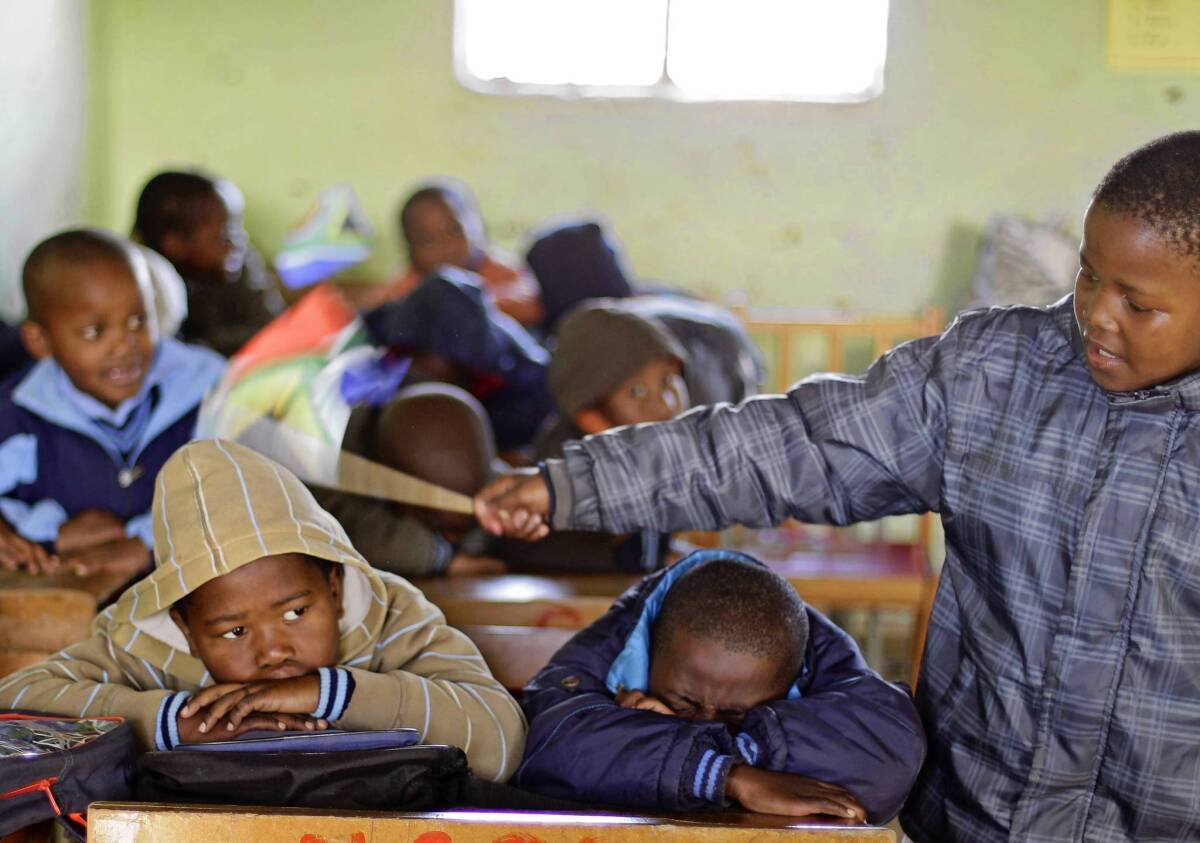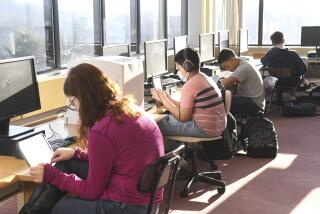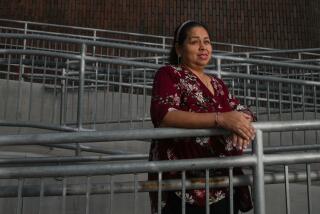Education experts lament South Africa test results

JOHANNESBURG, South Africa — They were the first “born free” generation, children whose births in 1994 marked the year that South Africa elected Nelson Mandela’s government in its first truly democratic election.
So when the results of their high school graduation exams were announced Thursday, it was another opportunity for the country to assess how far it had come in creating a new and more equitable society. The answer: not nearly as far as many would like.
Of the 1.1 million children who were born in 1994 and later entered first grade, fewer than half made it far enough to take the graduation exam. Of those who did, the percentage who passed was 73.9%, up from 70.2% in 2012. But some education experts despaired even of those results, given the relatively low bar set for passage.
Students in South Africa are offered a choice of dozens of tests in subjects as varied as each of the 11 national languages, a plethora of foreign languages, math (and a separate exam in “math literacy”), history, accounting, various sciences, visual art, dance and so on. Students must pass six to earn their diploma, called a National Senior Certificate.
To pass, they need only to receive scores of 40% on three exams and 30% on three others.
“I find it hard to get excited over … results,” tweeted the editor of South Africa’s Financial Mail magazine, Barney Mthombothi. “As long as pass mark is 30% … we’re fooling nobody but ourselves.”
As South Africa grapples with enduring socioeconomic inequality and soaring youth unemployment 18 years after Mandela’s African National Congress took power, the education system remains stubbornly difficult to change.
Among the most famous of Mandela’s many quotations is “Education is the most powerful weapon which you can use to change the world.” But South Africa has struggled to shake off the legacy of the “bantu education” system under apartheid, which denied blacks the right to the educational opportunities offered to whites.
Critics say the National Senior Certificate results are further proof of the education system’s failure to deliver any hope of a meaningful role in South Africa’s modern economy to poor blacks, especially in isolated rural areas.
That failure remains difficult to measure, however, because South Africa does not break down the results by race or economic status. Though it is widely presumed that affluent students perform better than poor ones, and it is known that white students are far more likely to be affluent than blacks, there are no statistics to measure or track the imbalance.
“We need a marker on socioeconomic inequality to see how young people from different economic backgrounds are doing,” said Doron Isaacs, deputy general secretary of Equal Education, an advocacy group. “The simplest proxy for inequality is still race. We think it’s quite poor for the government to avoid all that analysis so that all inequalities are papered over and it’s all presented in averages.
“The implication is that we are not building a united society. The student body of every township and rural school is 100% poor and black. These young people do not have a stake in modern, urban, prosperous South Africa.”
But the glaring problems underlying the statistics were glossed over in comments from the ruling African National Congress party and government officials Thursday as they lavished praise on the “born free” generation’s performance.
President Jacob Zuma called the results “outstanding.” A statement from the ANC said the performance of the class of 2012 “augurs well for our national drive to get South Africans and young people in particular to achieve educational success in view of the development challenges facing our country, the region and our continent.”
The weakness of South Africa’s education system was dramatically exposed in December when the government released the results of a national assessment of 7 million students, which showed ninth-graders receiving an average mark of 13% for mathematics.
The World Economic Forum said last year that South Africa ranked 132 among 144 countries in primary school education and 143 in math and science.
More to Read
Sign up for Essential California
The most important California stories and recommendations in your inbox every morning.
You may occasionally receive promotional content from the Los Angeles Times.










